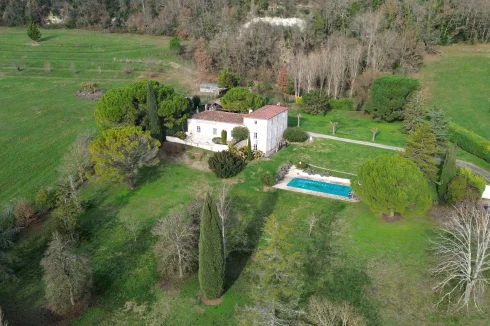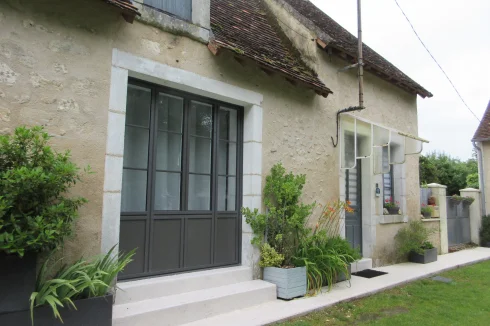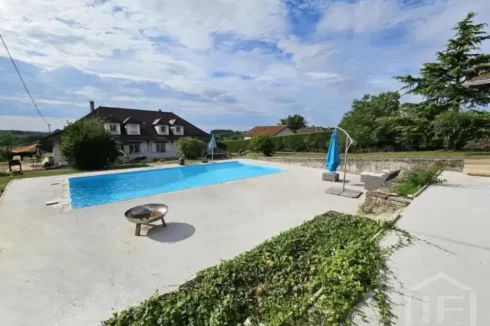Smart Electricity Meter Programme Under Fire
Wednesday 07 March 2018
The French national audit office has criticised the roll-out of electricity smart meters as ‘costly’ for users and ‘generous’ for EDF.
In a programme that is scheduled to be completed by 2021, the French electricity distribution agency ERDF (now called Enedis) is undertaking the installation of 'Linky' smart electricity meters in all homes in France.
So far 8 million of the meters have been installed, around 20% of the total number of planned installations.
The programme is part of a wider European based initiative on the use of intelligent meters.
Once installed, your electricity meter will be read remotely to your supplier, and your bill for each accounting period will be based on actual consumption.
The meters also come with real-time displays, which in theory should allow consumers to monitor electricity consumption.
However, there has been a great deal of controversy about the meters, particularly concerning their potential harmful effects on health.
In a recent report on the programme, although the auditor (Cour de Comptes) does not question the replacement of traditional meters, it considers that not everything has been done to reap the full benefits of such an investment, stating it to be "Un dispositif coûteux pour le consommateur, mais avantageux pour Enedis".
The ongoing installation of meters will be financed retrospectively by consumers, through an increase in the electricity distribution levy (Tarif d’Utilisation des Réseaux Publics d’Électricité - Turpe) that is imposed on all electricity bills, although it will not appear on bills until 2021.
The levy will not be imposed until then as the energy regulator (Commission de régulation de l' énergie - CRE) had considered that it was not justifiable for a tariff increase to take place before all households were equipped and for consumers to derive real benefits from the installation.
However, the auditors consider that these benefits are not clearly established today, in particular because Linky meters do not allow users to monitor their consumption in real time.
These criticisms echo those expressed last year by the Energy Ombudsman, Jean Gaubert, who in a report stated that he had asked in vain for the system to be available in real-time to the consumer.
The same applied to the possibility for users to recover a history of their consumption: this feature has not been implemented because of the failure to publish a decree.
To remedy this situation, the auditors considers that "effective monitoring of the implementation of the whole system is necessary to control the risk of drift".
The auditors also consider that the remuneration to Enedis to be generous by up to around €1 billion, in a programme that will cost them around €5 billion, and that the contract should be reviewed.
In relation to safety fears, the auditors denounced "insufficient steering" by the government, stating that it was not until December 2016 when a report from the public health agency, Agence nationale de sécurité sanitaire de l'alimentation, de l'environnement et du travail (Anses), was published, which gave the all-clear on the safety of the meter.
The auditors considered it not surprising that there was some resistance by local councils and consumers alike to the meters, despite the fact that only 0.6% of the installations had been blocked.
The CRE, for its part, reacted to the report by stating it notes that,"these advanced meters are essential to the energy transition". It estimates that the savings for consumers' in energy savings, estimated at €2 billion, will make the operation "financially neutral" for users.
So far 8 million of the meters have been installed, around 20% of the total number of planned installations.
The programme is part of a wider European based initiative on the use of intelligent meters.
Once installed, your electricity meter will be read remotely to your supplier, and your bill for each accounting period will be based on actual consumption.
The meters also come with real-time displays, which in theory should allow consumers to monitor electricity consumption.
However, there has been a great deal of controversy about the meters, particularly concerning their potential harmful effects on health.
In a recent report on the programme, although the auditor (Cour de Comptes) does not question the replacement of traditional meters, it considers that not everything has been done to reap the full benefits of such an investment, stating it to be "Un dispositif coûteux pour le consommateur, mais avantageux pour Enedis".
The ongoing installation of meters will be financed retrospectively by consumers, through an increase in the electricity distribution levy (Tarif d’Utilisation des Réseaux Publics d’Électricité - Turpe) that is imposed on all electricity bills, although it will not appear on bills until 2021.
The levy will not be imposed until then as the energy regulator (Commission de régulation de l' énergie - CRE) had considered that it was not justifiable for a tariff increase to take place before all households were equipped and for consumers to derive real benefits from the installation.
However, the auditors consider that these benefits are not clearly established today, in particular because Linky meters do not allow users to monitor their consumption in real time.
These criticisms echo those expressed last year by the Energy Ombudsman, Jean Gaubert, who in a report stated that he had asked in vain for the system to be available in real-time to the consumer.
The same applied to the possibility for users to recover a history of their consumption: this feature has not been implemented because of the failure to publish a decree.
To remedy this situation, the auditors considers that "effective monitoring of the implementation of the whole system is necessary to control the risk of drift".
The auditors also consider that the remuneration to Enedis to be generous by up to around €1 billion, in a programme that will cost them around €5 billion, and that the contract should be reviewed.
In relation to safety fears, the auditors denounced "insufficient steering" by the government, stating that it was not until December 2016 when a report from the public health agency, Agence nationale de sécurité sanitaire de l'alimentation, de l'environnement et du travail (Anses), was published, which gave the all-clear on the safety of the meter.
The auditors considered it not surprising that there was some resistance by local councils and consumers alike to the meters, despite the fact that only 0.6% of the installations had been blocked.
The CRE, for its part, reacted to the report by stating it notes that,"these advanced meters are essential to the energy transition". It estimates that the savings for consumers' in energy savings, estimated at €2 billion, will make the operation "financially neutral" for users.
Related Reading:
Thank you for showing an interest in our News section.
Our News section is no longer being published although our catalogue of articles remains in place.
If you found our News useful, please have a look at France Insider, our subscription based News service with in-depth analysis, or our authoritative Guides to France.
If you require advice and assistance with the purchase of French property and moving to France, then take a look at the France Insider Property Clinic.





